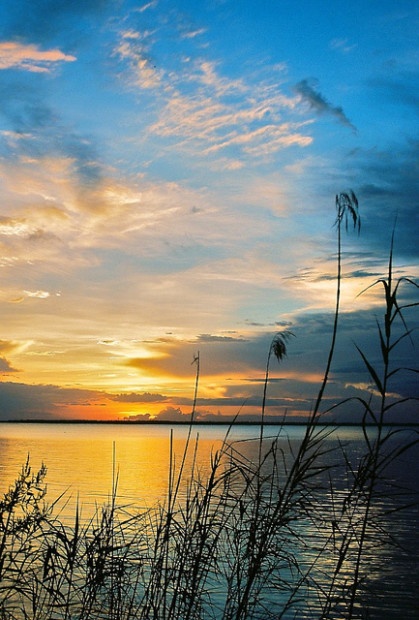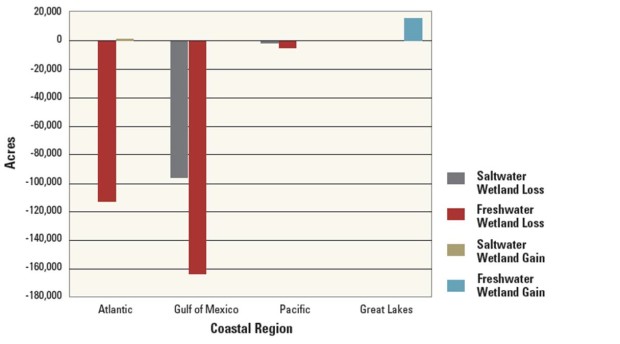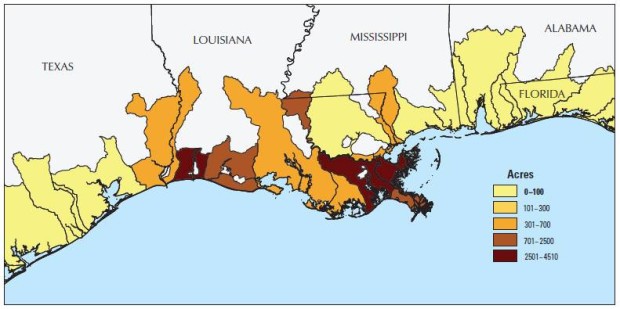We have much more to do and your continued support is needed now more than ever.
Gulf Coast Wetlands Rapidly Declining
The Gulf of Mexico is losing more wetlands than anywhere else in the United States and it is losing them more rapidly than ever before, according to a new federal report that assessed the status of wetlands in the United States.

The Significance of Wetlands
Why is this loss of this particular type of habitat so devastating? According to the lead author of the report, Tom Dahl, the effects are far-reaching:
“You lose places for those organisms to breed, feed, rest,” Dahl said. “You’re losing some capability for other environmental functions like filtering pollutants, providing some protection from storm damage.
“You’re losing recreational opportunities for bird-watching and canoeing. You’re affecting hydrology. The areas are no longer able to retain water. The hydrology is changing and we don’t recognize what the full implications are,” he said.
The Gulf’s Wetlands
The Gulf Coast is home to more than half of all saltwater wetlands in the country and the Gulf region also contains nearly 35% of the nation’s freshwater wetlands. Both types of wetlands are disappearing rapidly: there was a 25 percent increase in the rate of coastal wetland loss from the previous five-year period. The losses in the Gulf region were massive—257,150 acres of wetlands disappeared in total. That’s seventy-one percent of the total wetlands lost nation-wide.
The Vanishing Mississippi River Delta
Nowhere in the United States is losing wetlands faster than the Mississippi River Delta, the region where freshwater from the Mississippi River meets the Gulf of Mexico. Over the past eighty years, this ecologically important region has lost an area of fresh and saltwater wetlands as large as the state of Delaware. And the delta continues to disappear at an astonishing rate: an average of a football field of land is lost every hour.


Where do we go from here?
This study makes it clear that we need to do all we can to protect and restore wetlands across the country and particularly in the Gulf of Mexico. One year after the study ended, the BP oil disaster further affected the Gulf’s wetlands, particularly in the Mississippi River Delta, but elsewhere as well.
The RESTORE Act, which sends money from BP’s Clean Water Act fines back to the five Gulf States, gives us the opportunity to move the needle on these critical habitats and improve habitats and water quality in the Gulf of Mexico.
Take Action
![]() Ask the Secretary of Commerce to make sure that BP’s oil spill fines are dedicated to projects that will improve the health of the Gulf of Mexico for people and wildlife.
Ask the Secretary of Commerce to make sure that BP’s oil spill fines are dedicated to projects that will improve the health of the Gulf of Mexico for people and wildlife.






















